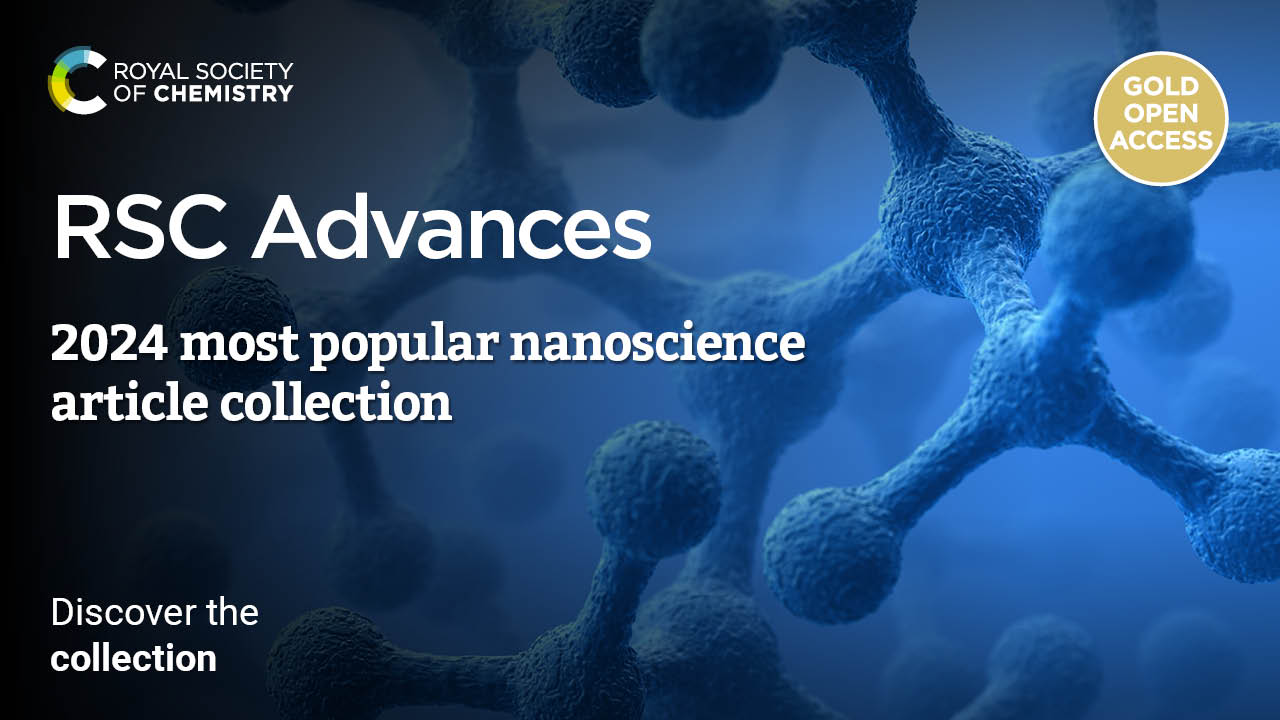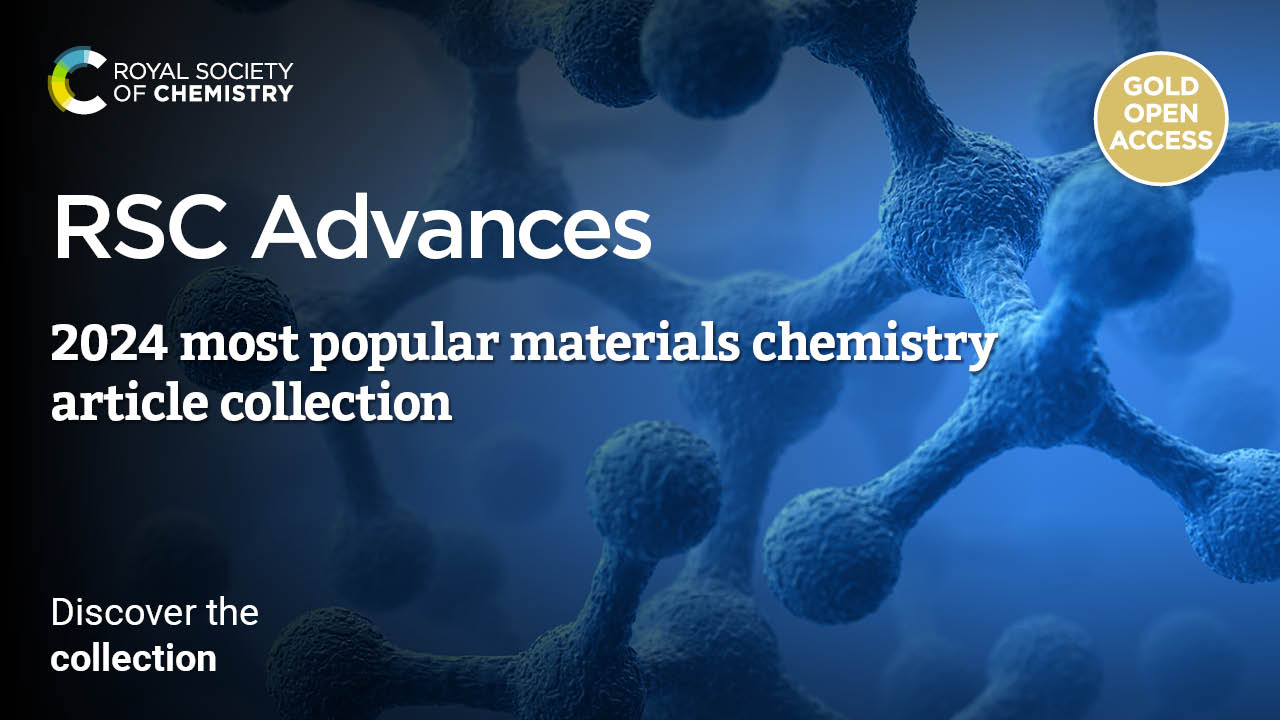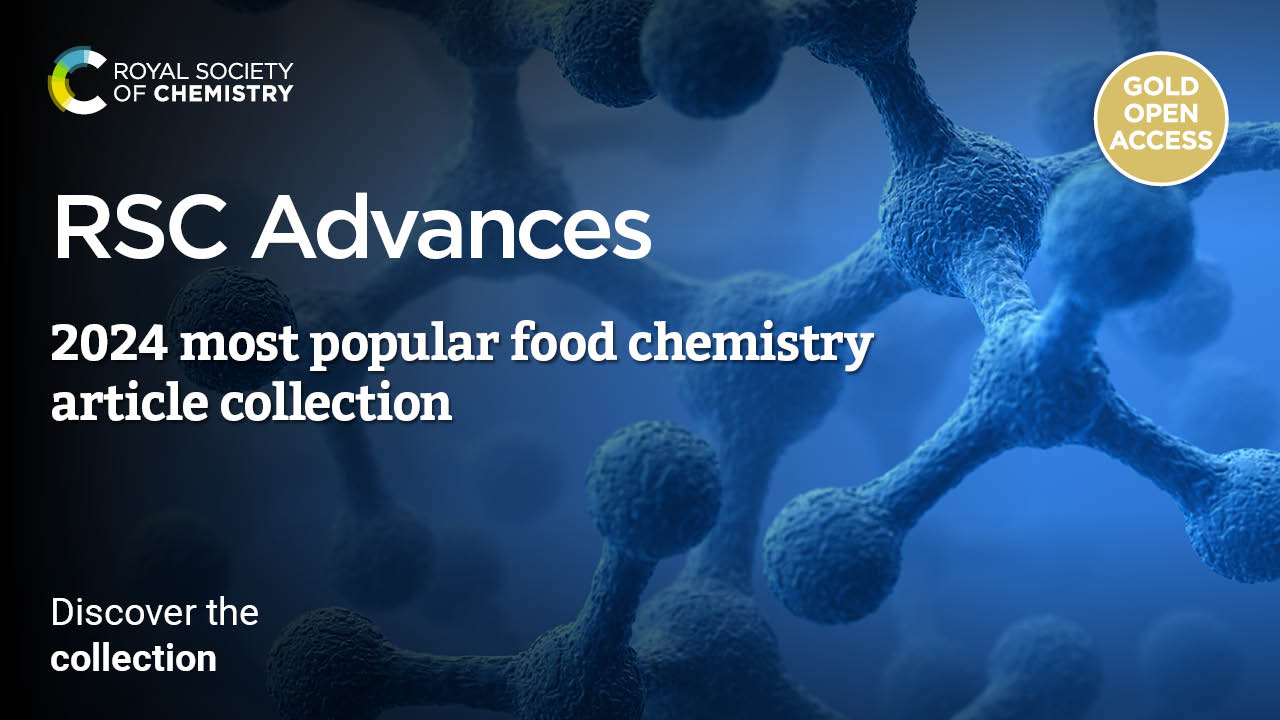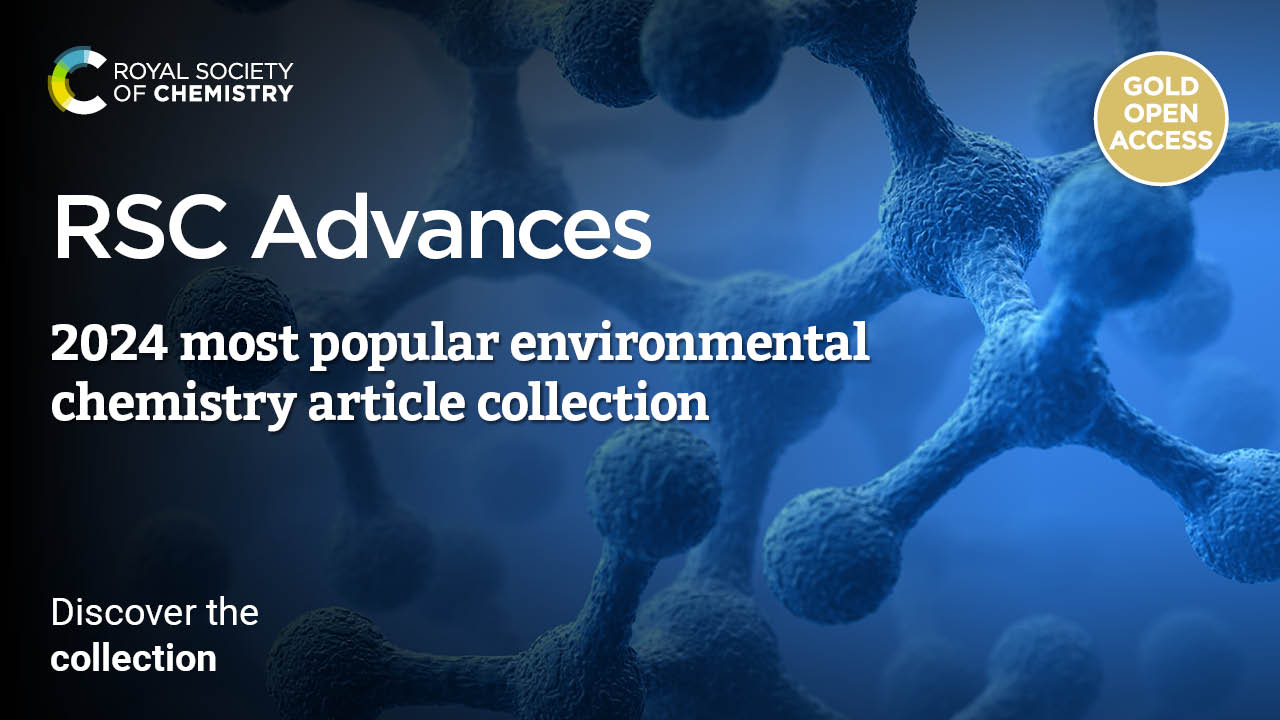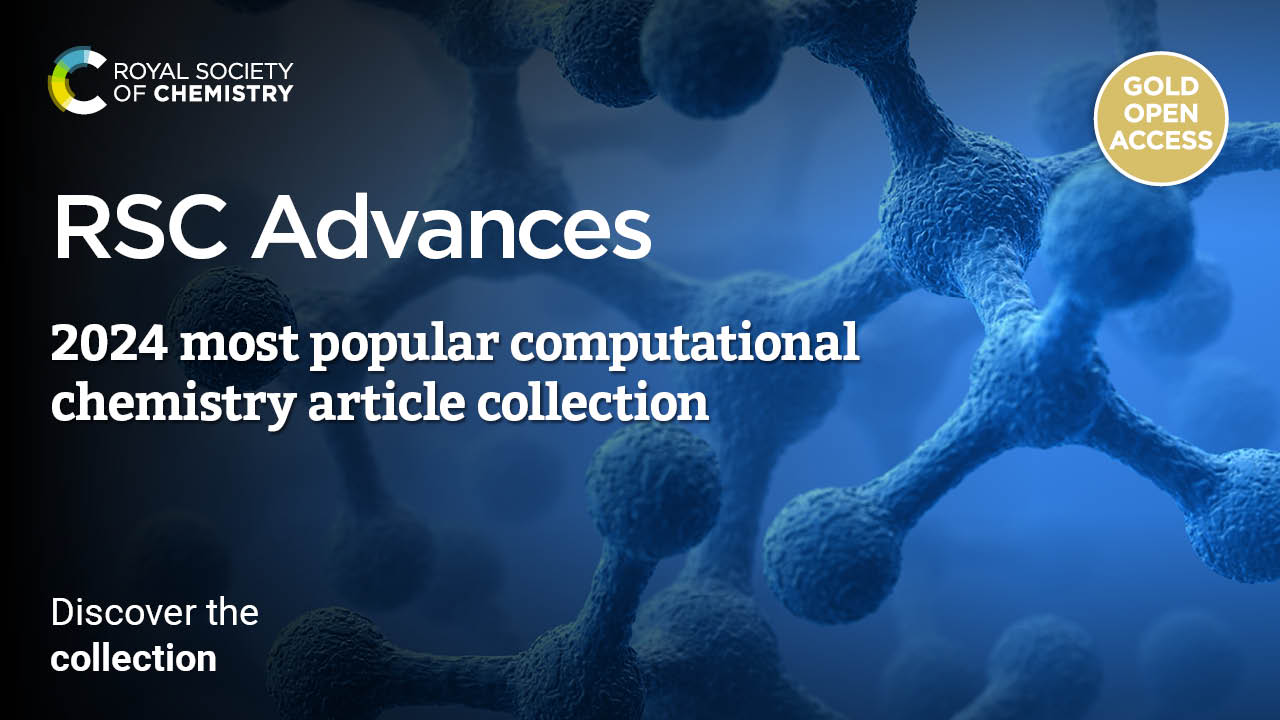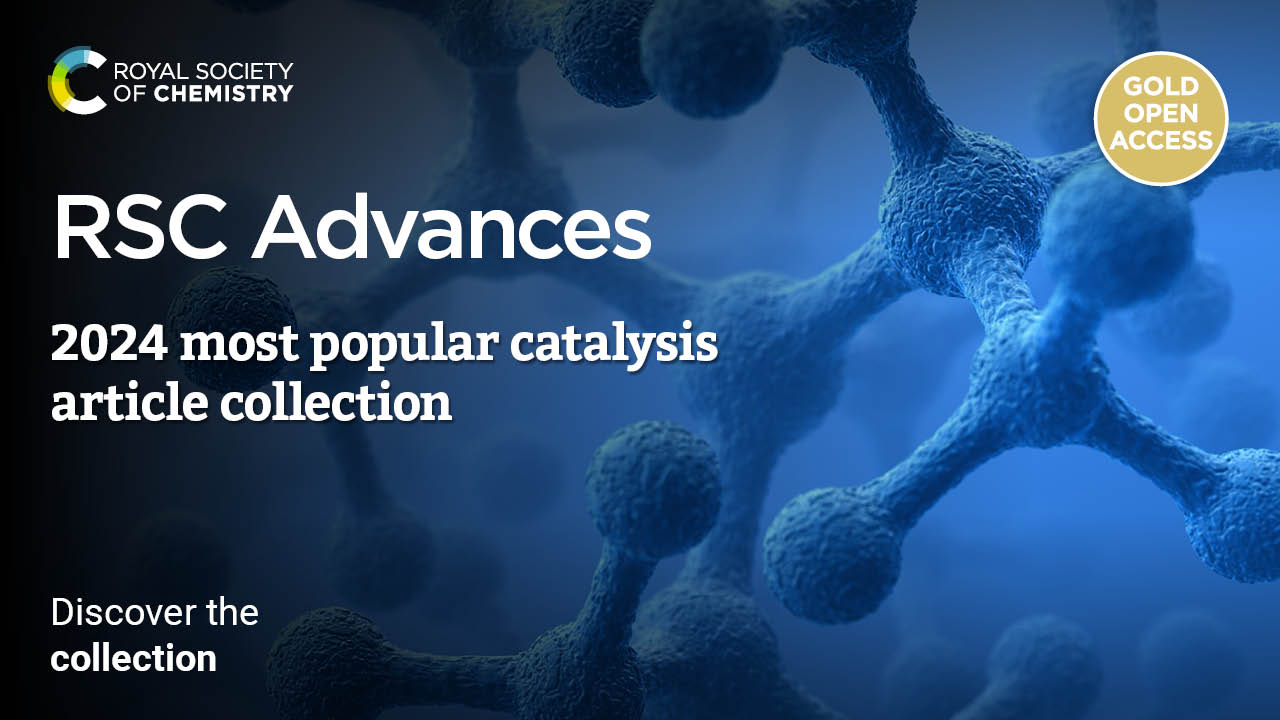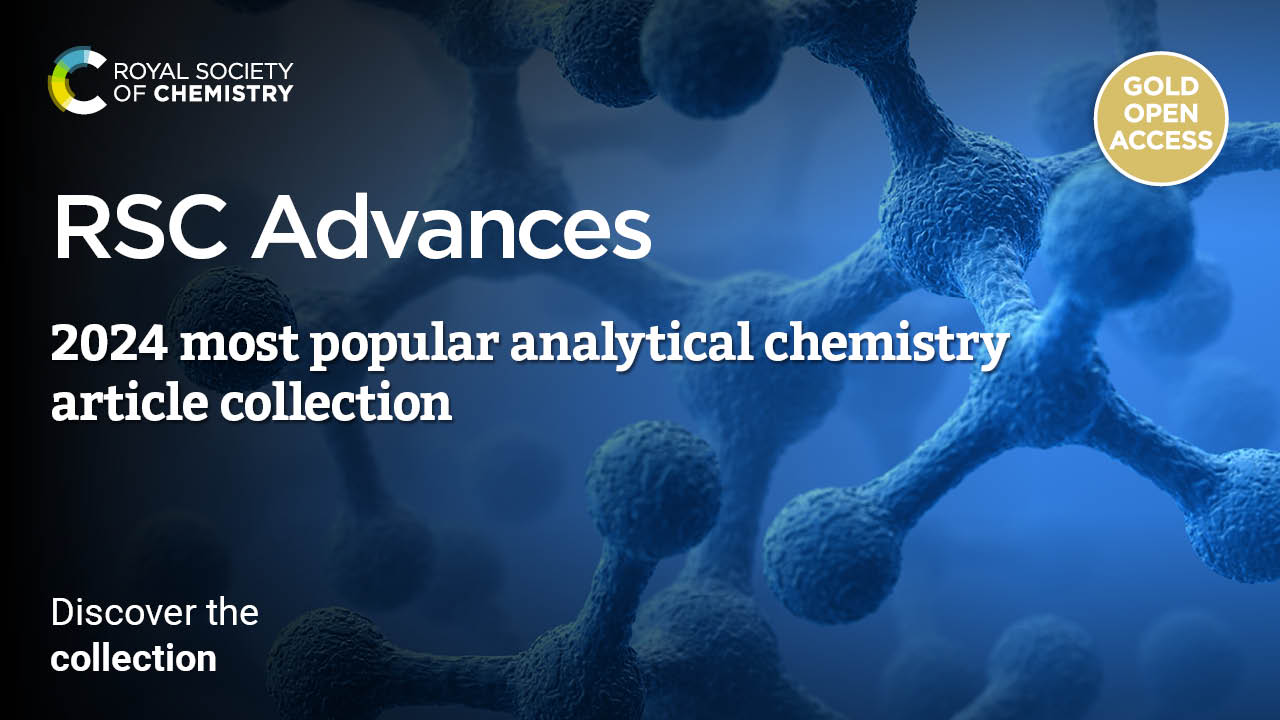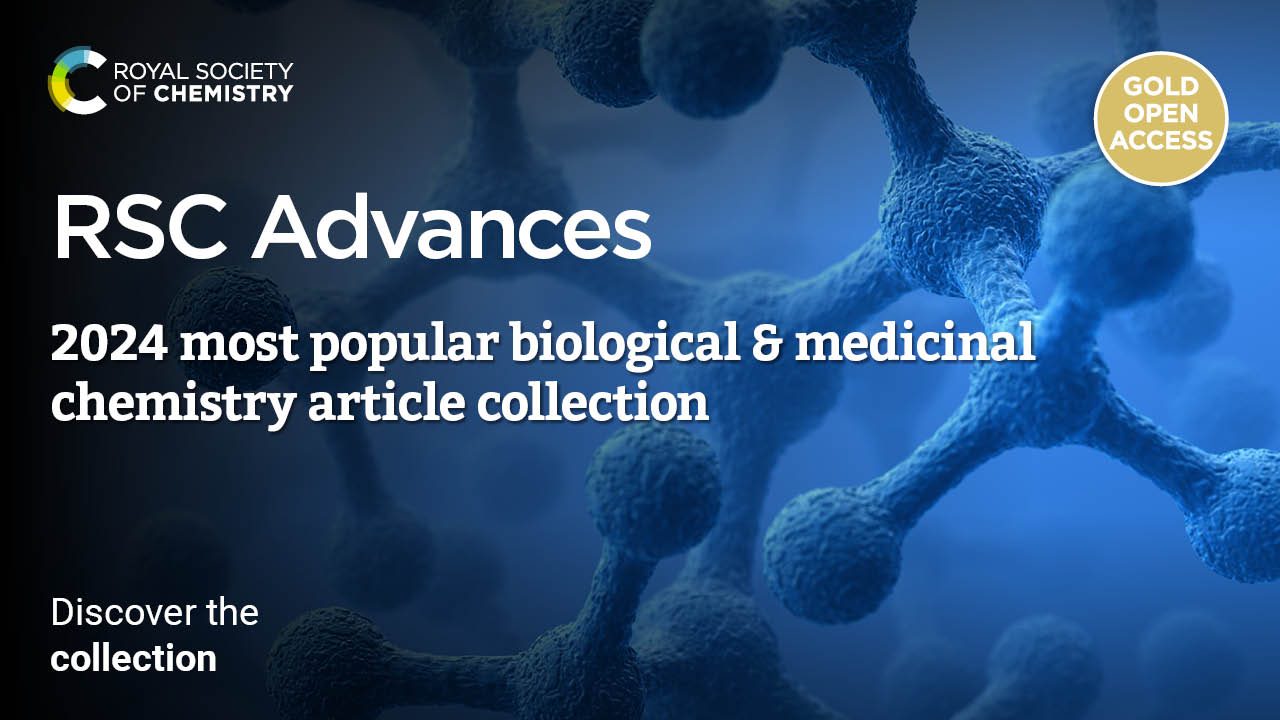Looking back over 2024, RSC Advances is delighted to present a collection of most popular articles in nanoscience.
Featured articles
Designing transition metal-based porous architectures for supercapacitor electrodes: a review
Feitian Ran, Meijie Hu, Shulin Deng, Kai Wang, Wanjun Sun, Hui Peng and Jifei Liu
RSC Adv., 2024, 14, 11482-11512
Promoting photoswitching in mismatching mixed-linker multivariate Zr6 MOFs
Carmen Rosales-Martínez, Diego López-Alcalá, Marcelo Assis, Celia Castillo-Blas, José J. Baldoví and Isabel Abánades Lázaro
RSC Adv., 2024, 14, 37984-37992
Optimization of silver nanoparticles synthesis via Plackett–Burman experimental design: in vitro assessment of their efficacy against oxidative stress-induced disorders
Madiha Muhammad Fazil, Anum Gul and Huma Jawed
RSC Adv., 2024, 14, 20809-20823
We hope that you enjoy reading through our selection.
We would also like to introduce you to the RSC Advances Associate Editor group who handle submissions in the area of nanoscience. They welcome you to submit your latest advance in nanoscience chemistry to RSC Advances.
A brief overview of RSC Advances
- one of the world’s largest gold open access chemistry journals
- international readership
- fast publication times ensure rapid visibility of your work
- all submissions are handled by a team of associate editors, who are established scientists actively working in the area
- all articles published in RSC Advances have been through the full peer review process
- the APC is among the lowest in the industry
- the Royal Society of Chemistry is a not-for-profit publisher – all surplus is re-invested back into the global scientific community
Find out more about RSC Advances and the benefits of publishing with us at rsc.li/rsc-advances
Submit to RSC Advances today! Check out our author guidelines for information on our article types or find out more about the advantages of publishing in a Royal Society of Chemistry journal.
Keep up to date with our latest Popular Advances, Reviews, Collections & more by following us on X. You can also keep informed by signing up to our E-Alerts.


